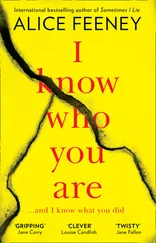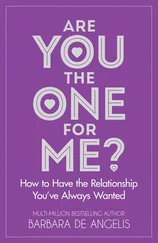“Amen to that,” said Leslie.
Jane insisted that we order champagne. It wasn’t real champagne, though. Just the sparkling wine that the menu referred to as shampanskoe. We raised our glasses. “To your new job!” Jane said. “To your future as an ace reporter.”
* * *
THE FOLLOWING WEEK Svetlana would call me for the last time. “Spasibo bolshoe,” she said. Thanks a lot.
“For what?” I said.
“You helped us create the idea!” she said.
“What idea?” I said.
“For Czar,” she said. “Now I will go to USA. To New York office. I will go to top of Empire State Building. I will walk on Brooklyn Bridge.” She sounded like she might not come back. I pictured her triumphantly hailing a yellow cab.
“So what’s the campaign idea?” I said.
“‘Czar,’” she said. “‘The cola worth defecting for.’ The campaign will be tongue-in-cheek. We will use the Cold War imagery.”
“That’s good,” I said. I didn’t bother to point out that defectors were anachronistic with czars. “Congratulations. But you didn’t need my help.” When it came to marketing, she was an expert. I told her I was staying in Moscow to work for the newspaper.
“This is funny,” she said. “You will be in Russia, I will be in America. We make a switch.”
“It is funny,” I said.
“When Jennifer Jones came here in 1983, I asked many questions about America. I never thought I would see for myself.”
“I waited a long time to see Russia,” I said.
“And?” she said. “You like what you found here?”
“Yes,” I said. “I’m glad you invited me. Thank you.”
“Nichevo.” It’s nothing. “And our friend?” she said. “You will help her?”
“I can’t,” I said. “I don’t have what she needs.”
“You have everything she needs,” she said. Her voice was drawn tight like a slingshot, ready to fire.
“I don’t,” I said. “Eto ne pravda.” It’s not true.
* * *
I TOOK A DIRECT FLIGHT to New York. I had a window seat, and as the plane lifted off early that afternoon, I looked out at the morose scene below. It was snowing gently, and as the runway lights streaked and blurred beneath me, I felt as if I were traveling through time. Going to Moscow was like stepping through a magic portal to a very different world. A world of superstition and shadows, of poetry and deadly icicles. Defectors and spies. Secret messages and invisible ink. Svetlana and Zoya and Andrei had served me the Russia of my imagination. It was hard to believe that it would take just ten hours to get back to the place where I began.
The seat next to me was empty, but across the aisle a toddler suddenly burst into hysterical tears. He writhed on his mother’s lap. “I don’t speak Russian,” she said to me. “He’s been crying for two days. I can’t get him to stop.” She rocked back and forth, and it was clear she was trying to soothe herself as much as the child. She told me that she had adopted the baby from an orphanage in Nizhny Novgorod and now she was taking him home to Nashville. She trembled as if the enormity of her decision to adopt this orphan had just hit her. On the flight to Moscow, she had probably been dreaming of nursery paint colors, and now she had the complicated knot of motherhood to face.
“I speak a little Russian,” I said. Her eyes pleaded with me. So I began to coo, whispering sweet reassurances in the boy’s mother tongue, and he watched me, with wary, watery eyes at first and then with increasing degrees of reverence, until we reached our cruising altitude and he went to sleep.
“Thank you,” the mother whispered. She was so grateful that I was a little embarrassed. I felt like a tourist being asked for directions. I didn’t know much, but this woman was so lost that she was willing to trust my expertise.
“No problem,” I said.
“His name is Pavel, but we’re going to call him Henry,” she said. She clutched the child against her chest with the desperate love of someone who has been waiting a long time.
“Henry’s a nice name,” I said. I pulled the shade down and tucked my airline pillow against the window to cushion my head. I didn’t realize how exhausted I was.
“It’s my father’s name,” she said. “My husband wanted to name him after his father, but I said, ‘If you can’t fly over to Russia with me, you sure as hell aren’t picking the name!’ He couldn’t really argue with that.” And she kept talking, but I can’t remember what else she said, because I drifted off. I slept for the whole flight. I slept through the beverage cart’s debut. I slept through dinner and the movie. If Pavel cried some more, I didn’t hear it. When I woke up, the cabin lights had been turned back on for landing. It was afternoon, and we were making our approach to JFK. The Russians on board applauded when we touched down.
“Welcome home,” the man at passport control said to me as he stamped my documents.
“Thank you,” I said, and some mixture of jet lag and patriotism caused me to tear up a little, right there in the airport.
On the other side of customs, I found my connecting flight to Washington. At National Airport my mother pulled me into a fierce hug. She was wearing a blue down jacket and a white wool hat with a pom-pom on top, an ensemble that made her look surprisingly young. “How was the flight?” she said.
“Easy,” I said.
“You smell like cigarettes,” she said.
“Secondhand smoke,” I assured her.
* * *
ON THANKSGIVING I TOLD my mother what I thought she needed to hear. We were in the kitchen, where she was, remarkably, preparing to stuff a turkey. She was rubbing a stick of butter over the bird, smearing its plucked, pimpled flesh with the same fretful drive she applied to everything. Her sleeves were rolled up, and her wrists were bony as a girl’s, her fingers bare—no nail polish, no rings.
“You might want to sit down for this,” I said.
“That’s what your father said when he asked for a divorce,” she said. She used the back of her left wrist to push a rogue strand of hair out of her eyes, then returned her greasy hands to the bird. “Whatever it is, I can take it standing up.”
So we were standing when I said, “I think we should dissolve the foundation.”
I don’t know what I expected, but the news didn’t send her scurrying to the bathtub. She took a moment to flip the turkey and then said, “I was afraid you were going to tell me you’re pregnant.”
“God, no,” I said.
“Well, that’s a relief. I’m not ready to be a grandmother. I don’t bake cookies. I don’t even know how to knit.”
I helped her stuff the bird. I made the mashed potatoes. Our pie was store-bought, but we cooked the rest of our dinner ourselves.
In the end she was glad to let go of the foundation. “I kept it going for you,” she told me. “Jenny was your friend.”
“That was a long time ago,” I said.
“To be frank,” she said, “I always thought she was kind of self-centered. But she meant so much to you.”
The next day she drafted a press release. The foundation was closing its doors because in the wake of the Cold War, its mission was no longer necessary.
* * *
AS FOR MY LETTER TO ANDROPOV, I read it one last time and then buried it in the Bishop’s Garden. I had new stories to tell.
November 20, 1982
Dear Mr. Andropov,
Are you going to start a nuclear war?
My mother says that after a nuclear bomb, everything will be dark. She says there will be no sun, so it will get really dark and cold. She says that there will be ashes everywhere, so the world will be gray. Colors will be erased. Everything will die. Sometimes I wake up and wonder will this be the last day? And if it is the last day, should I do something different? Something special? But in my house it’s already dark. It’s already dusty and cold. Maybe the catastrophe has already happened. Maybe you think you can destroy us, but that is not true. We can destroy ourselves.
Читать дальше












